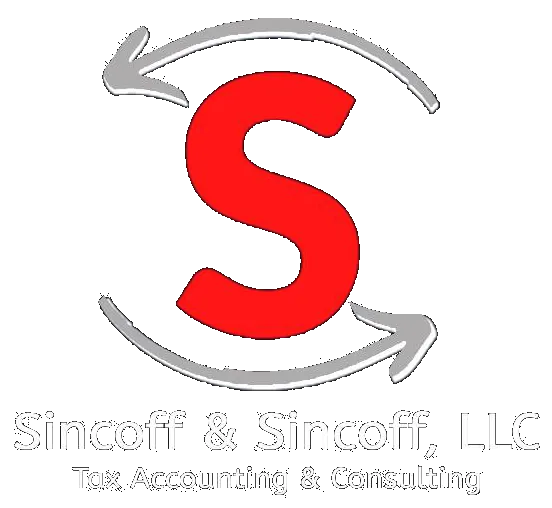In today’s digital age, services such as PayPal, Zelle, and Venmo have become the preferred method of how people and organizations handle financial transactions. Though these platforms offer ease of use, they also introduce tax requirements that can be perplexing. At Sincoff & Sincoff, we grasp the intricacies of digital payments and are prepared to assist you with the tax duties associated with using these popular services in New Jersey.
Understanding Digital Payment Platforms
What are PayPal, Zelle, and Venmo?
PayPal, one of the earliest digital payment platforms, enables users to send and receive funds, shop online, and manage invoices for businesses. It is highly regarded by online retailers and provides strong security measures.

Electronic Money Transfers Need Managing!
Zelle is a platform that allows instant money transfers directly between bank accounts. Utilized by over 1,700 banking institutions including many major banks, Zelle is integrated into many banking apps, and is popular for its rapid service and user-friendliness.
Venmo, under PayPal’s umbrella, is primarily designed for peer-to-peer transactions between friends and family. Its social feature lets users see transaction details, making it a favorite among young users.
The Rise of Digital Payments in New Jersey
The use of digital payment services has expanded significantly in New Jersey, especially during the COVID-19 pandemic, as contactless payments became more favored. Businesses have quickly adopted these platforms to facilitate smoother payment handling, bolster cash flow, and offer customers greater convenience.
Tax Implications of Using PayPal, Zelle, and Venmo
Reporting Income from Digital Payments
These platforms simplify fund transfers, but the IRS mandates the reporting of any income received through them. Key points include:
- Taxable Income: Income via these platforms for selling goods, providing services, or receiving payments that surpass a specific limit is taxable. This includes earnings from freelance jobs, side work, or business-related deals.
- Form 1099-K: For businesses or individuals using PayPal, Zelle, and Venmo, you will receive a Form 1099-K if your annual transactions exceed $600. This form plays a vital role in reporting total income to the IRS.
- Self-Employment Considerations: If you’re working as a freelancer or independent contractor, funds received through these services are liable for self-employment tax. Keeping detailed records of your earnings and expenses related to your job is crucial.
Deductions and Record-Keeping
Having sound documentation practices is essential when using digital payment platforms. Consider the following:
- Tracking Transactions: Employ accounting software or a comprehensive spreadsheet to log all payments’ dates, amounts, and purposes. This will aid in tax filing and income determination.
- Deductions for Business Expenses: If conducting business transactions on these platforms, you may deduct legitimate costs, like software, supplies, and other necessary expenditure. Holding onto receipts and invoices is vital to support your deduction claims.
- Separating Personal and Business Finances: It is wise to maintain different accounts for personal and business finances, simplifying record-keeping and clarifying your business income and expenses during tax filing.
State-Specific Considerations in New Jersey
Beyond federal regulations, people in New Jersey need to be aware of state tax requirements linked to digital payments.
- New Jersey State Income Tax: All income through PayPal, Zelle, and Venmo must be reported on your state tax return. New Jersey has distinct tax brackets, and accuracy is key to avoiding penalties.
- Sales Tax: If you sell goods or services, New Jersey mandates collecting sales tax from customers. Using digital platforms, ensure sales tax is included where necessary.
- Local Regulations: Depending on your location within New Jersey, additional rules could apply. Staying informed on local tax laws and their impact on digital payment use is vital.
How Sincoff & Sincoff Can Help
Navigating the tax landscape of digital payments can be daunting, but Sincoff & Sincoff is here to assist you step by step:
- Expert Consultation: Our knowledgeable CPAs provide specific advice on managing digital payment income, ensuring you grasp your tax duties and deduction options.
- Tax Preparation and Filing: We are experts in preparing tax returns that incorporate income from digital payments. Our team guarantees precise income reporting and maximizes allowable deductions.
- Record-Keeping Assistance: We support setting up an efficient record-keeping framework that facilitates transaction and expense tracking throughout the year, easing tax preparation and regulatory compliance.
- Audit Representation: Should an audit occur, our professionals will represent you, ensuring all paperwork is correct and you’re ready to address any questions from tax authorities.
Our Commitment Is To You
PayPal, Zelle, and Venmo are now key components of modern financial exchanges in New Jersey. While convenient, they come with notable tax duties. Understanding how to report earnings, maintain accurate records, and utilize deductions effectively is essential.
At Sincoff & Sincoff, we are committed to aiding you in managing the complexities of tax compliance associated with digital payments. Whether you have specific queries or require help with tax preparation, our dedicated team is eager to deliver the support you need. Contact us today to learn how we can assist you in handling your digital payment tax responsibilities successfully.
Disclaimer: Always consult Sincoff & Sincoff for the latest updates on laws and regulations, as tax legislation concerning digital payments is continuously evolving.

